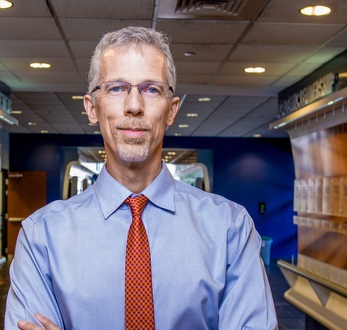The Future of Employment Supports Research
Paul Shattuck and Anne Roux
Posted on
August 31, 2015
As stated in our commentary on the state of employment supports research, “Although the majority of a typical lifetime is spent in adulthood, we know the least about this stage of life – by far – when it comes to autism.”
If we focus mainly on what we know about how to improve employment for people with autism, research over the past 50 years has mostly focused on how individuals and small groups of people respond to interventions and services. We need to think a lot bigger than this if we are going to find solutions that reach large numbers of people.
The life course and public health perspectives that we apply in our Life Course Outcomes Research Program offer some new ways of thinking about employment issues. They help us shift our attention from thinking about what works for an individual with autism to thinking about: 1) the role of organizations, communities and society, 2) factors that affect employment beyond the individual person, 3) new research approaches to help us measure interventions and outcomes.
Grassroots organizations are not sitting around waiting for academics to solve employment issues for adults with autism. In real world settings, many organizations are already innovating in bold new ways. The problem is not that people aren’t trying to implement ideas. The problem is figuring out how these efforts are making changes (or not) across a large number of people and programs. Why are poor employment outcomes persisting?
At a population level, we are almost completely unable to clearly describe the resources being spent on services or point to which indicators of outcomes we hope to influence – including the employment rate.
We believe that wise organizations invest in creating measurement feedback loops to learn from experience in ways that help improve future performance. So, why aren’t organizations measuring the effects of new practices for employment in our communities? The answer could be a lack of know-how, or it could be a lack of “know-who.” It’s difficult to measure collective impact if we don’t have all the players at the table - employers, adults on the autism spectrum, and family members – to commit to learning and plan for what we should be measuring and how.
A life course public health lens asks us to look around at other factors. Unemployment is a social problem. When jobs in our economy shift to the service sector, as they have, this causes more challenges for people who have difficulty with social skills. Increases in racial and ethnic diversity in our country also push us to look differently at how to help people from a range of backgrounds, neighborhoods and challenges connect to employment.
Big solutions won’t come from improving behaviors and abilities of people one at a time, although this is also important. We need to look at how our communities support the employment of persons with autism and design interventions that target communities and policies. This is how we impact the bigger picture.
Thinking at this bigger level also pushes us to rethink research questions.
How do successful employment programs benefit businesses and communities in addition to those on the autism spectrum? Can we challenge ourselves to study the strengths and benefits people on the autism spectrum contribute to workplaces and society?
There is no one solution for all employment woes. But we can learn from public health methods for evaluating and continually improving programs over time. The only guarantee is that the nature of employment challenges for adults with autism will continue to change as our communities change.
If we want to improve quality of life for people affected by autism, then we will need to consider more than individual-level approaches. We will measure more, partner better, and use a wider lens to evaluate needs and progress.
 Paul Shattuck, PhD, director of the Life Course Outcomes Research Program, studies experiences and services promoting positive life outcomes for people on the autism spectrum, their families and communities.
Paul Shattuck, PhD, director of the Life Course Outcomes Research Program, studies experiences and services promoting positive life outcomes for people on the autism spectrum, their families and communities.
 Anne Roux, MPH, MA is a nationally renowned autism researcher, author and family advocate. She leads the production of our National Autism Indicators Report series and other publications.
Anne Roux, MPH, MA is a nationally renowned autism researcher, author and family advocate. She leads the production of our National Autism Indicators Report series and other publications.